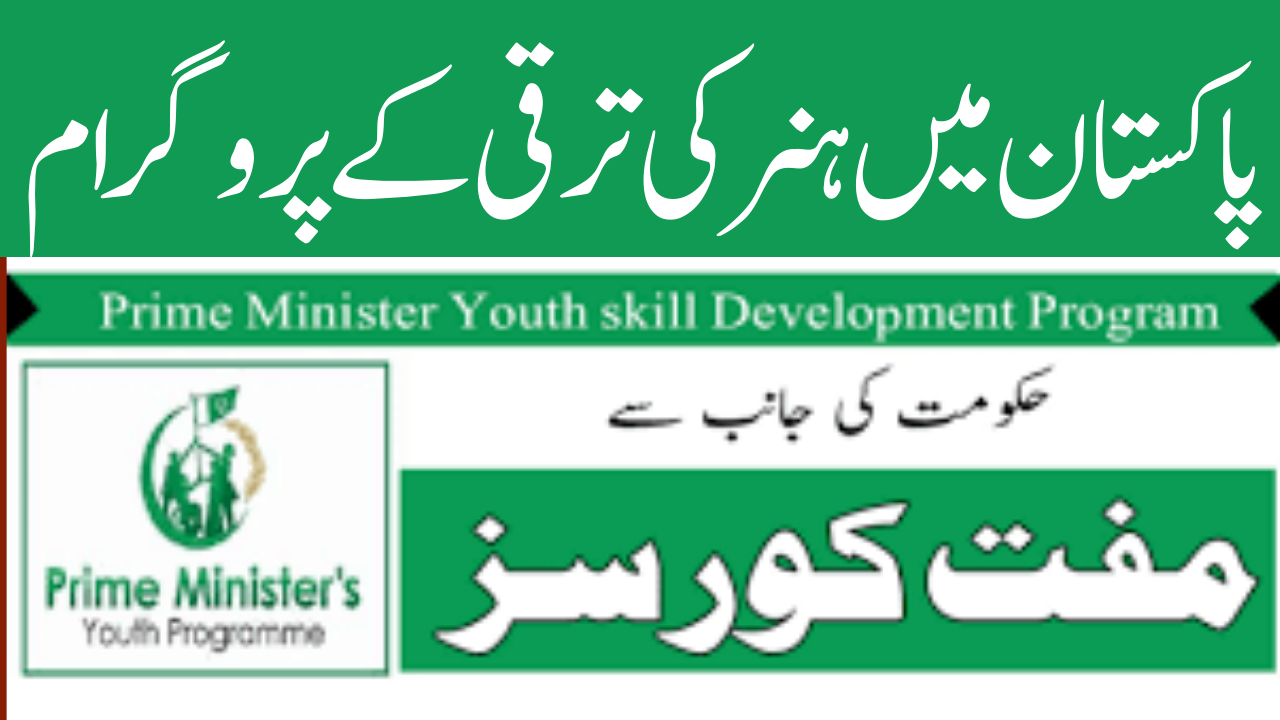Skills Development Programs in Pakistan
In recent times, Pakistan has recognized the critical significance of skills development in driving economic growth, reducing poverty, and enhancing employability. With a large youth population and increasing demand for skilled labor, both domestically and internationally, investing in skills development has become a top priority for the government and various stakeholders in Pakistan. In this blog post, we will explore the latest skills development programs in Pakistan, their objectives, implementation strategies, impact, and future prospects.
Read More: Maryam Nawaz Orders to Change the Design of Health Cards
Introduction to Skills Development Funds
Skills development refers to the process of acquiring and honing specific abilities, capabilities, and knowledge needed to perform tasks effectively in various sectors. In Pakistan, skills development programs aim to bridge the gap between the skills possessed by the workforce and the skills demanded by employers. This alignment boosts productivity, fosters innovation, and contributes to economic growth.
These programs play a crucial role in equipping individuals with the right skills, enabling them to find better job opportunities and improve their livelihoods. Let’s dive into the different skills development initiatives currently underway in Pakistan.
Current Update: Three Types of Pensions
Government-Led Skills Development Programs in Pakistan
Prime Minister’s Kamyab Jawan Youth Entrepreneurship Scheme
Launched in 2019, this scheme aims to provide entrepreneurship training, mentorship, and financial support to young entrepreneurs. It enables them to start their own businesses and contributes to the creation of new job opportunities. This initiative has been a game-changer for many young people in Pakistan, helping them turn their business ideas into reality.
Breaking News: Eligibility Criteria for CSS Exams 2024
National Vocational & Technical Training Commission (NAVTTC)
NAVTTC is responsible for formulating policies, regulations, and strategies for technical education and vocational training in Pakistan. It offers various skills development programs in collaboration with public and private sector institutions. NAVTTC’s initiatives are designed to provide hands-on training to individuals, ensuring they are job-ready and can meet the demands of the modern workforce.
Latest News: Ehsaas Nai Zindagi Program
Skills for All Program
This program focuses on providing technical and vocational education and training (TVET) to youth, especially from marginalized communities. By enhancing their employability and income-earning potential, the Skills for All Program plays a pivotal role in uplifting disadvantaged groups and integrating them into the mainstream economy.
Read More: Join Today! Punjab Socio-Economic Registration is Live. Register Now
Table: Eligibility Criteria for Skills Development Programs in Pakistan
| Program Name | Eligibility Criteria |
|---|---|
| Prime Minister’s Kamyab Jawan Youth Entrepreneurship Scheme | Age between 21 and 45 years, Pakistani citizen, minimum education requirement (varies based on program), business idea viability assessment |
| National Vocational & Technical Training Commission (NAVTTC) | Varied based on specific courses and programs, typically open to individuals with a minimum educational background (e.g., Matriculation) |
| Skills for All Program | Open to youth, particularly from marginalized communities, focusing on providing vocational education and training |
| Private Sector Training Initiatives | Eligibility criteria may vary depending on the organization and program, usually open to individuals interested in specific industries or trades |
| International Collaborative Projects | Criteria may vary based on the specific project and funding agency, often targeting specific demographics or sectors for skills development |
Private Sector Enterprise
In addition to government-led programs, the private sector in Pakistan has also been actively involved in skills development initiatives. Many multinational companies, as well as local enterprises, have established training centers, internship programs, and vocational training institutes. These initiatives aim to equip individuals with industry-relevant skills, enhancing their employability and career prospects.
The involvement of the private sector has been instrumental in bridging the skills gap, as these companies often tailor their programs to meet specific industry needs, ensuring that the workforce is aligned with market demands.
Current Update: Punjab Govt Introduces Agricultural Package of Over Rs174B
International Collaborations
Pakistan has partnered with various international organizations and donor agencies to strengthen its skills development ecosystem. Collaborations with entities such as the World Bank, Asian Development Bank, and United Nations Development Program have resulted in the implementation of projects aimed at enhancing the quality and relevance of vocational education and training in Pakistan.
These international partnerships bring in valuable expertise, resources, and funding, enabling the country to adopt best practices and innovative approaches in skills development. Such collaborations have significantly contributed to raising the standards of vocational education in Pakistan.
Latest News: Ehsaas Kafalat Program
Impact of Skills Development Programs
The impact of skills development programs in Pakistan can be measured in terms of better employability, increased productivity, and enhanced socio-economic outcomes. By equipping individuals with marketable skills, these programs contribute to poverty reduction, youth empowerment, and sustainable economic development.
Benefits of Skills Development Programs
Here are some common benefits of participating in skills development programs:
- Improved Employability: Skills development programs equip individuals with the relevant abilities and knowledge sought by employers, enhancing their chances of securing gainful employment or advancing in their careers.
- Increased Earning Potential: By acquiring new skills or upgrading existing ones, individuals may access higher-paying job opportunities or entrepreneurial ventures, leading to better financial stability and increased income.
- Career Advancement: Skills development enables individuals to stay competitive in the job market and pursue career advancement opportunities, such as promotions, job transfers, or transitioning to higher-skilled roles.
- Personal Development: Engaging in skills development fosters personal growth and self-confidence, empowering individuals to set and achieve personal and professional goals and adapt to changing workplace dynamics.
- Entrepreneurship Opportunities: Many skills development programs offer training and support for aspiring entrepreneurs, enabling them to start and grow their own businesses, create employment opportunities, and contribute to economic development.
- Social Mobility: Access to skills development programs can help bridge socio-economic disparities by providing marginalized communities and underprivileged individuals with the tools and resources to improve their livelihoods and quality of life.
Shocking News: Waseela-e-Taleem Program Registration Through Mobile App
Final Thoughts
Skills development is not just about acquiring technical expertise; it’s about empowering individuals to realize their full potential and contribute meaningfully to society. In Pakistan, investing in skills development is not only an economic imperative but also a moral obligation to ensure inclusive growth and prosperity for all segments of society.
Read More: Ehsaas Kafalat Program
FAQs
Q: Are skills development programs only for young people?
A: While many programs target youth, skills development opportunities are available for individuals of all ages, including adults seeking to upgrade their skills or transition into new careers.
Q: How can I enroll in a skills development program in Pakistan?
A: You can inquire about available programs through government agencies, vocational training institutes, and online platforms. Many programs offer both in-person and online learning options.
Q: Are skills development programs free of cost?
A: Some programs may be subsidized or offered at nominal fee rates, especially those sponsored by the government or donor agencies. However, there may be costs associated with specialized training or certification exams.
Q: What types of skills can I learn through these programs?
A: Skills development programs cover a wide range of areas, including technical skills, vocational training, entrepreneurship, and soft skills like communication and leadership.
Q: Can skills development programs help me start my own business?
A: Yes, many programs offer entrepreneurship training and support, equipping you with the skills and knowledge needed to start and grow your own business.
Q: How do skills development programs contribute to economic growth?
A: By improving the skills of the workforce, these programs increase productivity and innovation, leading to economic growth and prosperity.
Q: What role does the private sector play in skills development?
A: The private sector actively participates by offering industry-specific training, internships, and job placements, aligning skills development with market needs.
Q: How do international collaborations enhance skills development in Pakistan?
A: Partnerships with international organizations bring in expertise, resources, and funding, improving the quality and reach of skills development initiatives.


